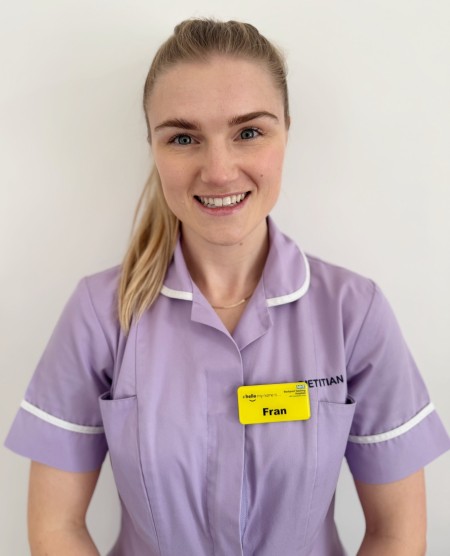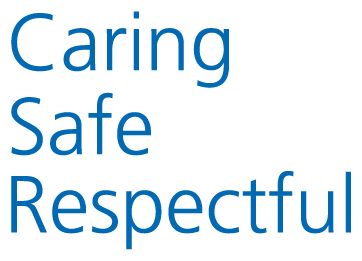Publish date: 17 June 2025

Undergoing cancer treatment such as surgery, chemotherapy and radiotherapy, brings side effects that can increase the risk of malnutrition. Dietitians play a pivotal role in supporting these patients to reduce the risks. In a newly funded role as a specialist gastroenterology / upper gastrointestinal (UGI) dietician, Fran provides face to face outpatient clinics which were previously not available. This improves patient experience and feedback has shown that they benefit greatly from this contact.
Fran’s work has reduced the waiting time for UGI cancer patients to see a dietitian from an average of over 26 days to just two days. This reduction in waiting time improves patients’ nutritional status, helps with symptom management and optimising them for cancer treatments.
The reduction in waiting time also reduces the number of emergency admissions for patients who experience a deterioration in their symptoms and who are unable to maintain adequate hydration and nutrition needs. Early input from the dietitian has highlighted nutritional concerns sooner and helped to create solutions to prevent deterioration. This can reduce the risk of severe complications such as significant weight loss and refeeding syndrome, which often requires the use of expensive medications.
Due to the nature of UGI cancer, some patients require tube feeding such as nasogastric tube feeding. Fran has helped to prevent emergency admissions by supporting these patients in the community and by troubleshooting problems associated with tubes which may have otherwise required an admission to hospital. By providing ongoing support in the community and arranging training so that patients can manage their own feeding tube and enable independence, this also helps to reduce the length of stay for patients.
Fran says “Over the last 12 months I have had the great opportunity to work with UGI patients and support their nutritional needs. I particularly enjoy the continuity of care this role provides as I get to support them throughout their journey.
"I often meet patients at the start of their diagnosis and follow them through their extremely tough cancer treatments. Nutrition support is vital throughout the stages of patient’s cancer treatment and continues even after treatment is completed.
"I am really pleased this role has made such a significant reduction in waiting times for patients to get the specialist dietetic support they need. I have seen first-hand how poor nutritional status results in worse clinical outcomes and quality of life for UGI patients, I hope to continue to support patients during cancer treatment. “



